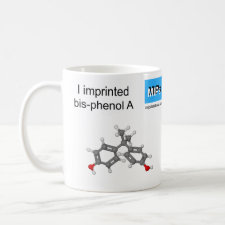
Authors: Rozaini MNH, Yahaya N, Saad B, Kamaruzaman S, Hanapi NSM
Article Title: Rapid ultrasound assisted emulsification micro-solid phase extraction based on molecularly imprinted polymer for HPLC-DAD determination of bisphenol A in aqueous matrices.
Publication date: 2017
Journal: Talanta
Volume: 171
Page numbers: 242-249.
DOI: 10.1016/j.talanta.2017.05.006
Alternative URL: http://www.sciencedirect.com/science/article/pii/S0039914017305246
Abstract: Molecularly imprinted polymer (MIP) was employed as sorbent in ultrasound assisted emulsification molecularly imprinted polymer micro-solid phase extraction (USAE-MIP-μ-SPE) of bisphenol A (BPA) in water, beverages and the aqueous liquid in canned foods prior to high performance liquid chromatography-diode array detector (HPLC-DAD) analysis. Several effective variables, such as types of emulsification solvent and its volume, types of desorption solvent and its volume, salting out effect, pH of sample solution, mass of sorbent, extraction and desorption time, and sample volume, were optimized comprehensively. Under the optimized USAE-MIP-μ-SPE and HPLC-DAD conditions, the method demonstrated good linearity over the range of 0.5-700 μg L-1 with a coefficient determination of R2=0.9973, low limit of detection (0.07 μg L-1), good analyte recoveries (82.2-118.9%) and acceptable RSDs (0.7-14.2%, n=3) with enrichment factor of 49. The method was applied to thirty samples of drinking water, mineral water, river water, lake water, as well as beverages and canned foods, the presence of BPA was identified in four samples. The proposed method showed good selectivity and reusability for extraction of BPA, and hence the USAE-MIP-μ-SPE is rapid, simple, cost effective and environmentally friendly
Template and target information: bisphenol A, BPA
Author keywords: bisphenol A, molecularly imprinted polymer, Ultrasound assisted emulsification micro-solid phase extraction, high performance liquid chromatography, Aqueous matrices



Join the Society for Molecular Imprinting

New items RSS feed
Sign-up for e-mail updates:
Choose between receiving an occasional newsletter or more frequent e-mail alerts.
Click here to go to the sign-up page.
Is your name elemental or peptidic? Enter your name and find out by clicking either of the buttons below!
Other products you may like:
 MIPdatabase
MIPdatabase









